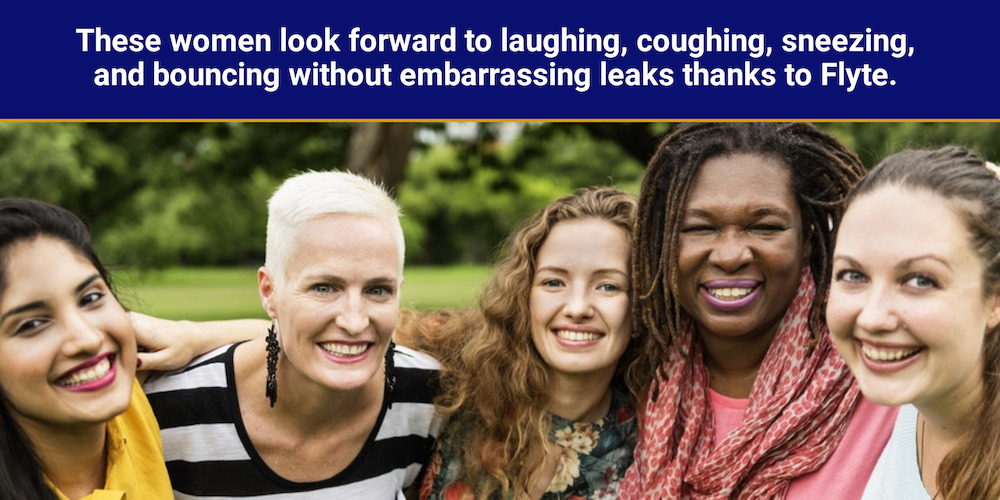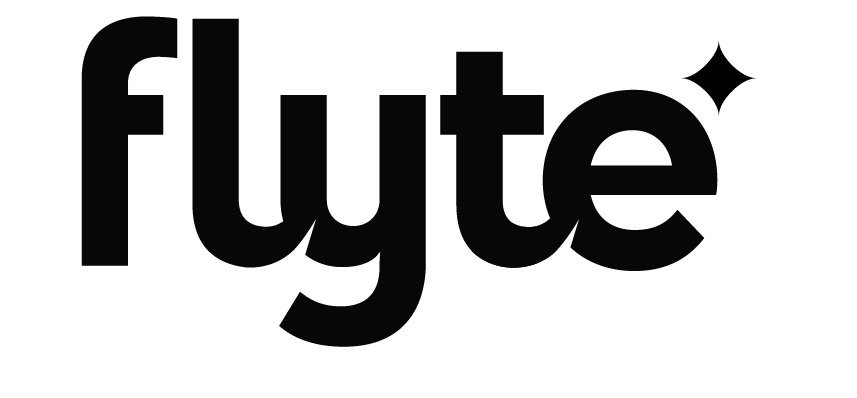I first met Lydia Zeller, CEO and president of Pelvital (dba Flyte) a femtech solution for stress urinary incontinence in women. If you are unfamiliar with femtech, it is a category of software, diagnostics, products, and services that use technology to focus on women’s health. While VisionTech Angels has invested in a wide range of life sciences companies, this is our first femtech company, a sector that’s recently begun experiencing a lot of growth. I invited Lydia to meet with the VisionTech Angels Screening Committee earlier this month. The group was impressed with Flyte, how they are addressing a significant unmet need, the investment opportunity and Lydia, and we invited her to present at our February 23rd virtual pitch events. Here’s a preview.

BP: Tell me a little about yourself. Is this your first startup?
LZ: No, I’ve actually been an entrepreneur for 25 years and have a lengthy background in digital health. The last company I founded and where I served as CEO was Kiio, a digital health company in the musculoskeletal space, which exited in late 2021. I was brought onboard at Flyte in 2022 to take a fresh look at the go-to-market strategy. Outside of Flyte, I’m the board president of the Wisconsin Startup Coalition and a member of Women Business Leaders of the U.S. Health Care Industry Foundation.
BP: What’s the backstory on Flyte?
LZ: First, 60% of women suffer from some form of urinary incontinence, so it’s a big problem. Flyte was originally developed by researchers, physicians, and physical therapists at the Arctic University of Norway. They were frustrated by the fact that nothing worked for patients who came in with stress urinary incontinence. Mechanotherapy was being used to treat astronauts who’d lost muscle strength in space. The question was asked, “Can we use this healing modality to revitalize the pelvic floor of women?” That started the effort at Arctic University to develop the technology that became Flyte.
BP: I didn’t realize incontinence was such a big issue.
LZ: Most people don’t. And one of the reasons is it’s embarrassing for women to talk about even though one in two have stress or mixed urinary incontinence. It happens when a woman laughs, coughs or bounces during exercise. It can develop after pregnancy. Athletes suffer from it. Incontinence is also part of the aging process. As common as incontinence is, more than 80% of women just put up with it without treatment. Some wear pads or absorbent undergarments, which are expensive. Some do Kegel exercises at home to strengthen muscles. A very small percentage, less than 3%, opt for surgery. That’s expensive, there’s the risk of complications and it doesn’t always work. A lot of women are frustrated and end up living with leaks.
BP: How is Flyte different?
LZ: Flyte is a safe, non-surgical, bladder leak treatment for stress urinary incontinence in adult women. It is the only product to apply mechanotherapy to pelvic floor. It is a quick, easy treatment patients can do for just five minutes per day to strengthen their pelvic floor and realize dry or near-dry results in just six weeks.
Now here’s how the “magic” of mechanotherapy works. The Flyte device is a wand made of soft, medical-grade silicone that is placed in the vagina. During treatment, it delivers a series of gentle pulses while the patient contracts her pelvic floor muscles. This amplifies the benefits of each squeeze—commonly called Kegels—by 39 times. This promotes the healing response in the pelvic floor muscles and restores strength and bladder control. Length of treatment is six weeks. Women can continue to use Flyte to maintain pelvic floor muscle tone if they like.
BP: You’ve done clinical trials in Norway and the United States, and the results are impressive.
LZ: Thank you! We have done the largest clinical trials of stress urinary incontinence in the world, with a total of 179 participants. The first trial was done in Norway at one center with 60 women. After six weeks, 83% of the women were continent. After two years, 77% will still continent. A second study was done in the United States with multiple centers and 119 women. After six weeks, 81% had improvements and at 12 weeks, 91% reported improvements. Overall, 71% achieved dry or near dry in two to 12 weeks.

BP: What are the barriers to adoption and how are you addressing?
LZ: Among consumers, there’s a lack of awareness that there’s something new available to them and that it works. We’ve also found that women are a little leery. Surprisingly, incontinence is a noisy space. A lot of people are selling snake oil. And even traditional treatments aren’t that effective. Many women who have tried something that didn’t work give up. Being new, we have to create awareness and educate women that our treatment works, and it’s quick. Some women achieve total dryness in two weeks, for others it’s six weeks of more. Increasing our presence on social media and through digital healthcare companies will help us increase awareness.
B2B partners get it, particularly clinicians who see the problem day-in and day-out, know their patients struggle with current options and are not solving the problem. They are impressed with the results of our clinical trials. Our price point, $395 per device, would be more attractive if covered by insurance or Medicare/Medicaid. So we are working on getting a reimbursement code.
Interestingly enough, we also have to overcome barriers with potential investors. Femtech is a new category of investing. Men often don’t realize what a debilitating issue incontinence is for women because women hide it so well. Unlike back surgery or a cancer drug, it’s not always easy to explain our return on investment. Incontinence ROI is more complicated. It’s been linked to depression, urinary tract infections, withdrawal from various activities in professional and personal settings, stopping exercise—the list goes on.
BP: What is your go-to-market strategy and where are you seeing traction?
LZ: To date, B2C has been our primary focus, and we are making a small profit here. Last year, we concentrated on reducing our customer acquisition cost and succeeded in cutting it in half. Once we close this round, we will be more involved in our B2C outreach through social and digital channels. Where we’re putting more effort is B2B. In the virtual healthcare arena, we are in advanced discussions with multiple partners and have signed a contract with a large Minnesota healthcare system. B2B deals take more time to develop and close but will allow us to scale more quickly.
BP: What kind of intellectual property protection do you have?
LZ: Our technology is very well protected, and we did that intentionally. We have 17 patents in all: seven in North America, four in Europe, four in Asia, and two in Australia.
BP: What round is this?
LZ: We are currently in our seed round and the goal is to raise $4.5 million. Boomerang Ventures is leading the round through their fund.
BP: What is your planned use of funds?
LZ: Our priorities include securing a reimbursement code so we are accessible to more women through private insurance and Medicare/Medicaid; building out our next generation product, a connected device that will enable Cloud capture of data, a mobile apps for users, and features for virtual healthcare companies, health systems and clinicians; and making key hires in sales, marketing and business development that support commercialization. We will also be building our inventory in anticipation of increased demand.
BP: Give me three reasons why VisionTech Angels members should invest.
LZ: Do I have to limit it to three? I have five.
BP: Sure! Go ahead.
LZ: First off, women’s stress incontinence is a huge market with an unmet need. Second, Flyte is the right product at the right time. At long last, women’s health has become a priority, and this coincides women finally realizing it’s okay to talk to taboo topics like incontinence and demand for solutions for all women. Our timing coincides with the rise of digital health, which thanks to Covid, became mainstream.
Third, we have a differentiated, patent-protected, novel approach that has been de-risked through clinical trials and has regulatory clearance for over the counter and prescription sales. Fourth, our business model aligns with direct-to-consumer retail and digital health, with women and partners looking for a real solution to stress incontinence. We are that solution. Fifth, we have a great team!

VisionTech Angels’ February Pitch Events will be virtual on Thursday, February 23 at Noon and at 6 p.m. ET. Pitch events are open to our members and accredited investors interested in joining our group. To register, check your email for an invitation, go to our Events page where you’ll find the RSVP links, or email Ben Pidgeon at bpidgeon@visiontech-partners.com
